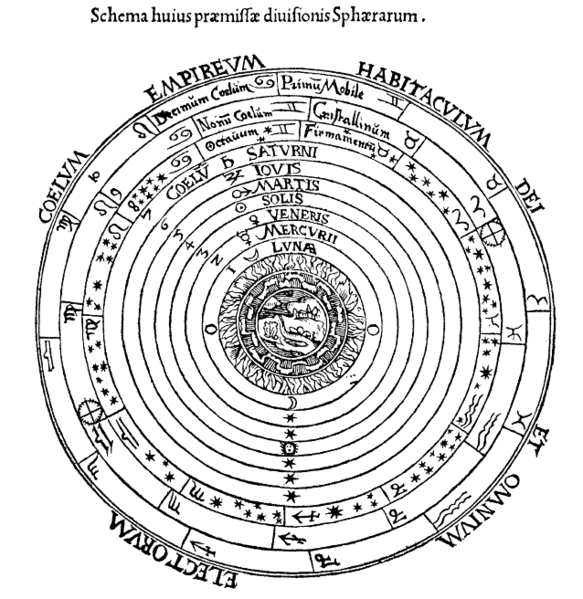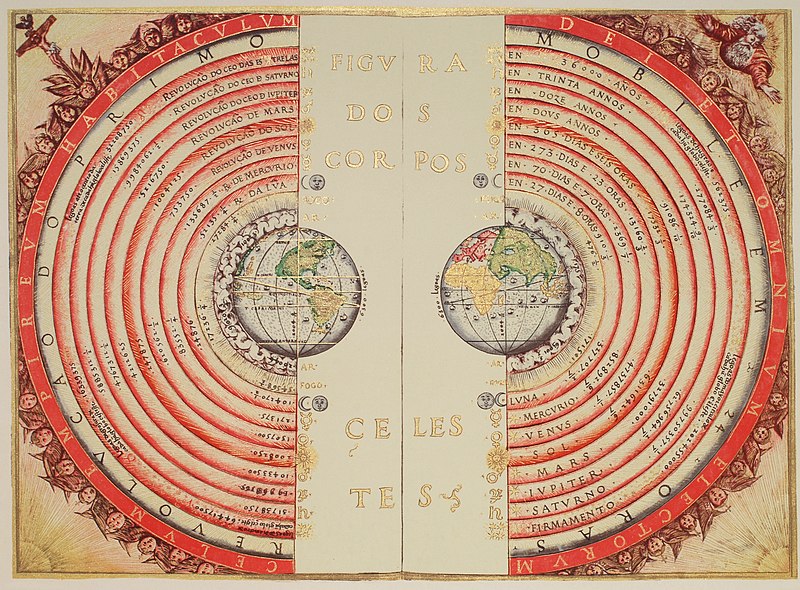I was feeling very down when I woke up this morning for a variety of reasons--exhaustion, the weather, eating too much crap the day before, and the fact that my class is so off the syllabus at this point, I wasn't sure if I was prepared. I was seriously considering skipping it but I object to that on principle (OH, how my work ethic has changed since my undergrad days!) so I went anyway. I'm not actually that crazy about this class--as interesting as it is, and as enthusiastic about the material as the professor is, it's not a history course. It's a philosophy course. We have not studied any sort of timeline--he does offer context but only in bits and pieces. I find this frustrating because I think he's ignoring some very strong connections to the major events and developments in Europe. For example, we studied Roger Bacon and Nicholas Oresme, two proto-scientists. Science wasn't really a discrete discipline back then, it was all tied in with the medieval worldview (the Great Chain of Being), Aristotle's tight little concentric, eternal universe and God. They rediscovered Aristotle after the Reconquista and the Crusades and all the scholars (who were pretty much by definition Christian clerics) went crazy over it and for a couple of hundred years, all anyone talked about was Aristotle and his all-inclusive, a priori world where (almost) everything was explained. Even though we now know those a priori assumptions were wrong, the magnitude of his logic is still pretty impressive, and it's truly amazing that a bunch of parochial Latin-Christian clerics embraced it so strongly. It is an addictive worldview--everything is explained (almost), and it all leads to everything else. The four elements, cosmology, music, art, eschataology (or lack thereof), logic--it is pretty awesome. It even explains Gryffindor and Slytherin! And I just love contemplating all those mesmerizing cosmological graphs and imagining the beautiful music that I can't hear...


But along come Bacon and Oresme who are among the first scientists to start challenging this--Oresme in particular postulated the idea that in fact earth is NOT the center of the universe, by introducing the concept of relativity. If you're in a ship and you see another ship moving--it could be you who's moving, Your perspective is affected by where you're located. When you really think about this--it's pretty astonishing, relativity. It's threatening NOW and we live in a world much more open to multiple points of view--it must've been a huge shock back then. The professor explains this by pointing to the medieval economy, which (for many reasons, including a jump in the pop;ulation) had been getting steadily more complex) introduced a value-neutral world. A loaf of bread isn't inherently worth 20 doubloons, or whatever. It's worth whatever the going market dictates which constantly shifts. I thought that was a great idea but I also thought he was missing a huge event which must've shaken everyone's worldview, the Great Mortality. So I sent the professor an email:
Also, the emergence of the proto-Copernican POV fascinates me. It seems like SUCH a huge
leap to make--going from all those tight little Aristotelian circles to the idea that
what if we're NOT the center of the universe? In class you'd described that Aristotelian
universe as "satisfying" or comforting (something like that)--I think that a big factor
in this new POV was the Pestilence. When a third of your world has been wiped out,
*everything* has to be reexamined. "And people said and believed, 'This is the end of
the world.'"
The Oresme stuff was a couple of generations after the first wave hit, so they'd had some
time to come to terms with and could filter their destroyed sense of Aristotelian order
through a more rational sensibility.
He also lectured about how Bacon was the first philosopher to apply knowledge--the first to link knowledge with power, and he thought up all sorts of inventions and applications. This time (13th c.) was a period where a LOT of inventions were emerging, including the clock. Another thought occurred to me:
...the previous week
when you were talking about how differently Latin-Christian Europe viewed applied science
(technology, essentially) from the Romans, it occurred to me that the Crusades
undoubtedly were a major impetus for that. Your essay made the connection between an
increasingly complex and market-driven economy and the emergence of non-Ptolemaic points of
view--I'd also like to make the connection between that new market economy and the
technological development. Nothing accelerates development like competition--either
economic or war. Both are essentially survival of the fittest, after all.
So he responded that he'd rather talk to me in person during office hours, it's too complicated to discuss via email. Which--sure, fine, but I've not been able to meet his office hours even once this semester so far, I've been so busy. Can we at least MENTION the Black Death in class?! :) I'm easy to please, just hand out a timeline of events you deem significant, that'll do! I gotta have the larger picture.